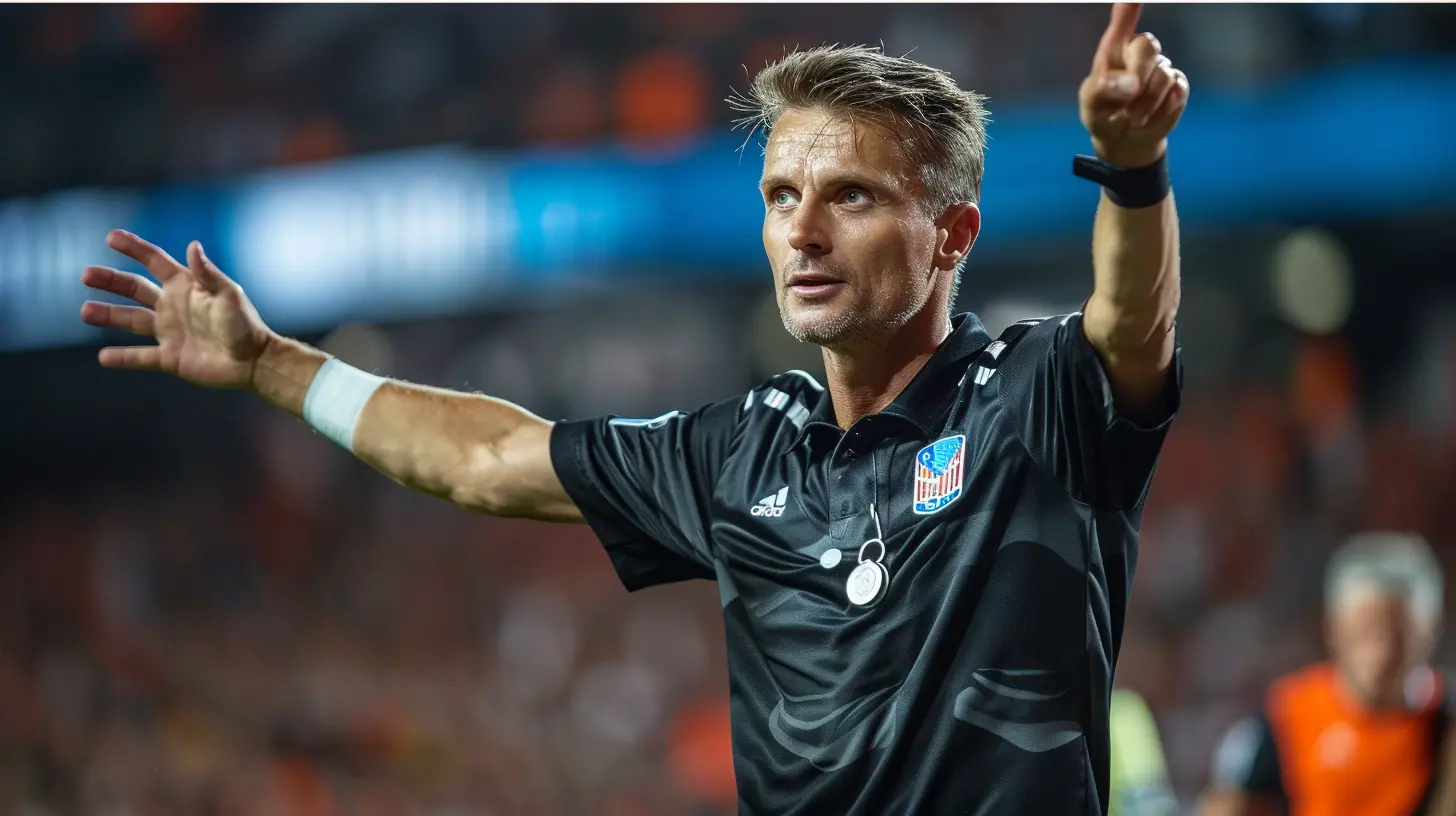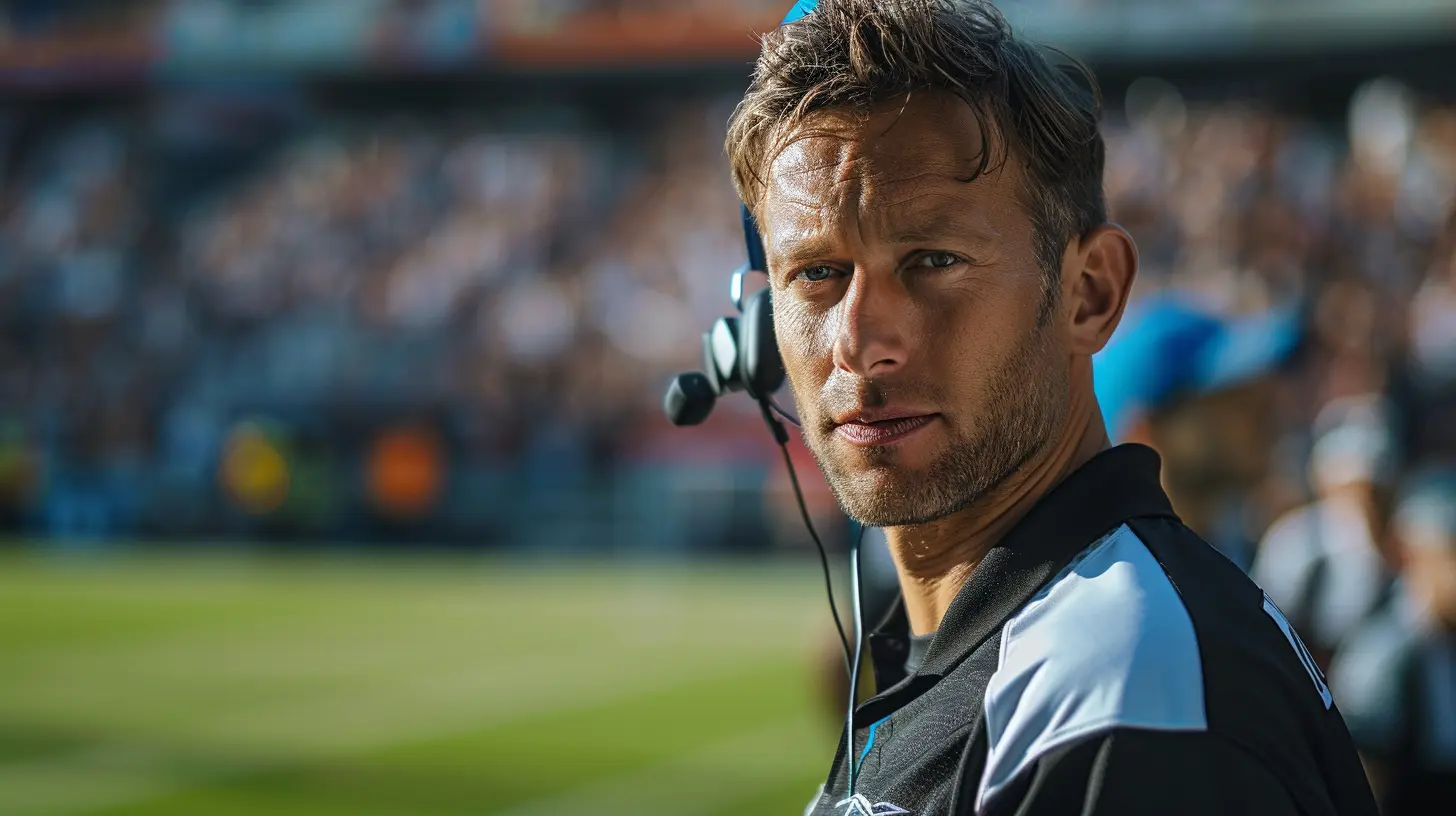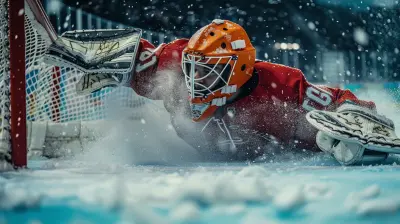The Art of Staying Neutral: The Psychology Behind Great Refereeing
31 May 2025
Referees are often the unsung heroes of sports. They don't score goals, hit home runs, or make game-winning shots. But without them, chaos would reign on the playing field. The best referees are more than just rule enforcers—they are masters of psychology, decision-making, and emotional control.
But what makes a great referee? How do they remain neutral even in the most high-pressure moments? Let's dive into the psychology behind great refereeing and the mental tools they use to stay fair, focused, and fearless. 
The Pressure of the Whistle
Imagine standing in a packed stadium with thousands of screaming fans. The players are jawing at you, emotions are running high, and in a split second, you have to make a game-changing call. Sounds intense, right?Being a referee is one of the most mentally demanding roles in sports. They are constantly scrutinized and criticized, often taking the blame for controversial decisions. Regardless of the situation, they must uphold fairness and integrity while tuning out external pressure.
So, how do they do it? It all boils down to psychology, experience, and an unshakable mindset. 
Mastering Emotional Control
Referees are human. They experience emotions just like the rest of us. But great referees have an uncanny ability to control their emotions, no matter how heated the game gets.Staying Cool Under Fire
Players and coaches often challenge referees, sometimes aggressively. A less-experienced referee might take these confrontations personally, but a great referee understands that emotional outbursts are part of the game. Rather than reacting impulsively, they take a deep breath, remain calm, and confidently enforce the rules.One key psychological trait of elite referees is emotional intelligence (EQ). This allows them to manage their own emotions while also understanding the emotions of players, coaches, and fans. An emotionally intelligent referee knows when to de-escalate tensions and when to stand firm.
The Power of Detachment
Referees don’t have the luxury of personal biases. Whether they grew up supporting a particular team or dislike a certain coach, none of that matters once they step onto the field.The best referees practice cognitive detachment. They separate their personal feelings from their professional duties. This is why elite referees train their minds to focus solely on the game, rather than getting caught up in emotions or crowd reactions. 
Decision Making Under Pressure
A fraction of a second. That’s all the time referees have to make critical decisions. Unlike players, who can review game highlights later and adjust their strategies, referees must make accurate calls in real time—without hesitation.Fast, Fair, and Fearless
Referees rely on a combination of instinct, experience, and training to make split-second decisions. They don’t just memorize the rulebook—they develop an intuitive understanding of the game.When a controversial play happens, they don’t have the luxury of overthinking. Hesitation can lead to doubt, and doubt can lead to mistakes. Instead, they trust their training, make the call, and stand by their decision with confidence.
Overcoming Decision Fatigue
Refereeing isn't just about making one or two big calls. Over the course of a game, referees make hundreds of micro-decisions—positioning, fouls, penalties, and game management. This constant decision-making can lead to mental exhaustion, also known as decision fatigue.To combat this, referees train their minds just like athletes train their bodies. They develop mental endurance through experience, preparation, and mindfulness techniques. Some even use visualization exercises, mentally rehearsing different in-game scenarios to strengthen their decision-making abilities. 
Blocking Out External Noise
Fans are passionate, and that passion often turns into frustration when a call goes against their team. Referees hear it all—boos, insults, and sometimes even threats. But the greatest referees don’t let the crowd influence their decisions.The Selective Hearing Technique
Elite referees master the art of selective hearing. They tune out negative noise while staying alert for important signals—whistles, communication from fellow referees, and the movement of players.Think of it like driving in a busy city. Honking, sirens, and pedestrian chatter fill the air, but skilled drivers focus only on what matters—the road, traffic lights, and critical sounds. Referees apply the same principle on the field.
Avoiding Superstar Bias
Another challenge referees face is subconscious bias toward famous players or popular teams. Studies have shown that even trained professionals can be influenced by social pressures, sometimes giving preferential treatment to big-name athletes.However, great referees fight against this instinct by sticking strictly to the rules, not reputations. They treat every player equally, regardless of their fame or status.
Confidence in the Face of Controversy
No matter how well a referee performs, someone will always be unhappy with their decisions. That’s just the nature of the job.Great referees don’t seek validation. They understand that criticism comes with the territory, and instead of trying to please everyone, they focus on making the right calls.
The Courage to Be Unpopular
Making the right call isn't always the easiest choice. Sometimes, it means going against the home crowd, upsetting a star player, or changing the course of a game. But great referees don't back down under pressure.They don’t second-guess themselves, nor do they let hostility shake their confidence. They trust their judgment, accept the backlash, and move on to the next play.
Learning from Mistakes
Even the best referees make mistakes. What separates good referees from great ones is their ability to learn and adapt. Instead of dwelling on past errors, they review game footage, analyze their decisions, and refine their approach for the future.We often talk about athletes improving their game, but referees go through the same process. They constantly strive to be better, more consistent, and more resilient.
The Mental Toughness of a Great Referee
If you think refereeing is just about blowing a whistle, think again. It’s a mental battleground. The best referees must possess nerves of steel, unwavering focus, and an unbreakable sense of fairness.The Perfect Balance
They strike a delicate balance between authority and approachability. They must command respect while also maintaining open lines of communication with players and coaches.Great referees aren’t robots. They engage with athletes, explain calls when needed, and ensure that the game flows smoothly. The best ones understand the rhythm of the game, allowing it to breathe rather than constantly interrupting play.
Respect is Earned
Respect isn’t given—it’s earned. Players may not always agree with a referee’s decision, but they respect a referee who is consistent, fair, and confident.The greatest referees in history—whether in football, basketball, or soccer—became legendary not just because of their knowledge of the rules but because of their composure, decisiveness, and ability to manage the game like a true professional.
Final Thoughts
Refereeing is an art, a science, and a psychological challenge all rolled into one. It takes mental toughness, quick decision-making, and an unwavering commitment to neutrality.So the next time you see a referee on the field, take a moment to appreciate the complexity of their role. They’re not just officials; they’re the guardians of fairness, ensuring the game is played with integrity.
Because at the end of the day, great refereeing isn’t just about making calls—it’s about earning trust, handling pressure, and keeping the game beautiful.
all images in this post were generated using AI tools
Category:
RefereeingAuthor:

Umberto Flores
Discussion
rate this article
3 comments
Sheena Mahoney
Great refereeing embodies integrity and calmness. Embrace neutrality to elevate the game—your focus and fairness can inspire athletes and fans alike!
June 18, 2025 at 4:43 AM

Umberto Flores
Thank you for your insights! Embracing integrity and neutrality is indeed essential for effective refereeing and inspires everyone involved in the game.
Susan Sharp
Oh sure, because nothing says "thrilling sports experience" like a referee who’s more neutral than Switzerland. Can’t wait for the next big game—bring on the excitement of impartiality!
June 7, 2025 at 10:44 AM

Umberto Flores
I appreciate your perspective! Neutrality is essential for fair play, and it often enhances the game’s integrity and excitement for everyone involved.
Grant Daniels
This article beautifully captures the essential balance referees must maintain. Understanding the psychology behind their neutrality is crucial for fostering fair play and respect in sports. Thank you for shedding light on such an often-overlooked aspect of the game!
June 6, 2025 at 12:36 PM

Umberto Flores
Thank you for your insightful comment! I'm glad you found the article highlights the importance of psychological balance in refereeing. Your support means a lot!



